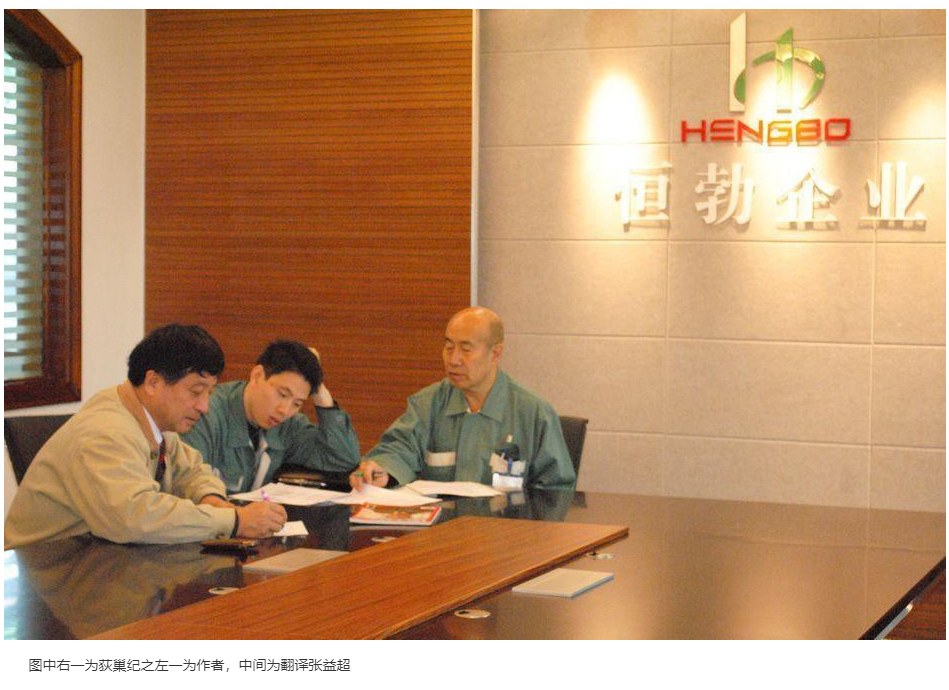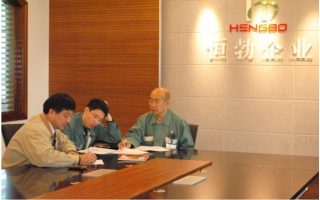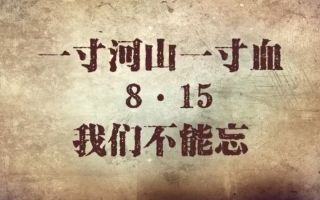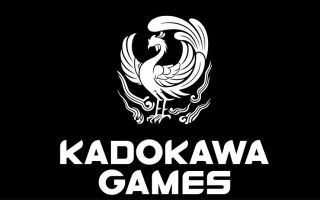他从东瀛来一一访日本专家荻巢纪之
- 2021-08-13 10:37:28
- 点赞量:5284
- 点击量:77324
- 作者:郝连成 Hao Liancheng

在浙江恒勃公司的餐厅里,要是不听说话,谁也不会从几百个穿着一样工作制服的就餐者中间想到那个秃脑袋老人竟是日本专家。
In the restaurant of Zhejiang Hengbo company, if you don't listen, no one will think that the bald old man is a Japanese expert from among hundreds of diners wearing the same work uniform.
恒勃公司的大宣传画廊是这样介绍这个日本专家的:获巢纪之,恒勃公司技术总监,1946年生,毕业与日本国之蒲工业大学。来华前先后担任株式会社日本富世自行车有限公司研究员。本田技术研究所朝霞研究所研究员。1995年在中国嘉陵本田负责CB125T本地化生产推行,先后获得发明专利20项。实用型专利18件,发表论文27篇。2005年至今在浙江恒勃滤清器有限公司,广东恒勃滤清器有限公司任技术总监。先后研究开发五本KVXF, GFMF, 铃木UZ5o,UZ110,UZ125三菱油箱,KSV,嘉铃本田风扇等20多个项目,为企业创造了显著效益。
The big publicity Gallery of Hengbo company introduced the Japanese expert in this way: Huo Chaoji, technical director of Hengbo company, born in 1946, graduated from guozhipu University of technology, Japan. Before coming to China, he successively served as a researcher of Japan Fushi Bicycle Co., Ltd. Researcher of Chaoxia Research Institute of Honda Technology Research Institute. In 1995, he was responsible for the localized production and implementation of cb125t in Jialing Honda, China, and successively obtained 20 invention patents. 18 practical patents and 27 papers were published. Since 2005, he has served as the technical director of Zhejiang Hengbo filter Co., Ltd. and Guangdong Hengbo filter Co., Ltd. It has successively researched and developed five kvxf, gfmf, Suzuki uz5o, uz110, uz125, Mitsubishi oil tank, KSV, Jialing Honda fan and other more than 20 projects, creating remarkable benefits for the enterprise.
二战刚刚结束的1946年,荻巢纪之出生在离东京乘地铁20分钟路程的琦玉县一个叫庆应的小镇上。这里树木葱茏,处处樱花。
In 1946, just after World War II, Dichao Jizhi was born in a small town called Keio in Qiyu County, 20 minutes by subway from Tokyo. There are verdant trees and cherry blossoms everywhere.
荻巢先生记得他家的姓氏是早年从名古屋传过来的。他恍惚听老人们说他家的祖上很早的时候曾和天皇的家族有些渊源。可能是政见不和他们一家就隐居了起来。获巢先生从小在陆军的初级中学学习。后来考入了“志木”工业专科学校,学习生产通讯和生产管理,是属于半工半读的那种专收男生的学校。
Mr. Di Chao remembers that his family name came from Nagoya in his early years. He listened vaguely to the old people say that his family's ancestors had some ties with the emperor's family very early. Maybe they lived in seclusion because of political differences. Mr. huochao studied in the junior middle school of the army since childhood. Later, he was admitted to the "Zhimu" industrial college to study production communication and production management, which belongs to the part-time job and part-time study A school for boys.
后来就在日本的一家自行车株式会社搞了十年的设计工作。在此期间,他最大的成就是设计出了世界上最早的折叠式自行车。得到过那个株式会社的总经理奖。后来辞职到了本田技术研究所,担当起了大机种开发室的主管。
Later, I worked in a bicycle Co., Ltd. in Japan for ten years. During this period, his greatest achievement was to design the world's first folding bicycle. Won the general manager award of that corporation. Later, he resigned to Honda Technology Research Institute and acted as the director of the development room of large models.
那段时间是他事业上收获最丰的阶段,采访中,他给我拿出了一本象中国《辞海》那么厚的《开发的步骤》日文手册和早年的日本机械杂志上介绍荻巢先生发明专利的文章。里边还配发着荻巢先生年轻时的照片。
That period was the most fruitful stage in his career. During the interview, he gave me a Japanese Manual of development steps as thick as China's Cihai and an article on Mr. Di Chao's invention patent in the early Japanese machinery magazine. There are also photos of Mr. Di Chao when he was young.
到中国后,他就把兴趣转移到了摩托配件的研发上。凭着他对日本国内情况的熟悉他建议研发生产雅玛哈,菱木等一些摩托车空滤器, 油箱和碳罐等向日本品牌的摩托车厂商提供配套件。
After arriving in China, he transferred his interest to the research and development of motorcycle accessories. With his familiarity with the domestic situation in Japan, he suggested developing and producing Yamaha, lingmu and other motorcycle air filters, fuel tanks and carbon cans to provide accessories to Japanese brand motorcycle manufacturers.
使恒勃公司这家全国最大的摩托车滤清器生产企业一-直处在本行业的领跑前沿。
Hengbo company, the largest motorcycle filter manufacturer in China, has always been at the forefront of the industry.
荻巢先生是个工作认真的人。一次他为给研发中心的技术人员讲课,要用一个投影仪,就到办公室去借。办公室人员几经变动,谁都不知道有这么个东西,就告诉他没有。等翻译告诉荻巢没有时,荻巢先生火了起来:“什么地没有,我的前些年地用了用了地,”他急得把话说得象电影里的太君一样了。后来他亲自到仓库里果然在一堆废旧的纸箱下边找到了那台好几年没人用的投影仪。接着他就发了一顿雷霆大火。
Mr. Di Chao is a hard worker. Once he went to the office to borrow a projector to give a lecture to the technicians in the R & D center. After several changes in the office staff, no one knew there was such a thing, so they told him there was no such thing. When the interpreter told Di Chao that there was no land, Mr. Di Chao became angry: "there is no land. I used land a few years ago." he was so anxious that he spoke like the Taijun in the film. Later, he went to the warehouse in person and found the projector that had not been used for several years under a pile of waste cartons. Then he had a big thunder fire.
后来翻译张益超告诉我。那天获巢的火大了,骂我们工作不负责任不细心,凡事不为企业着想。说在日本这样的员工早就通通地赶走了。
Later, the translator Zhang Yichao told me. On that day, the fire of getting the nest was great. We were scolded for our irresponsible and careless work and for not thinking about the enterprise. Said that in Japan, such employees have long been driven away.
其实,公司里有扫描仪完全可以把他的资料扫描到电脑上然后通过电脑演示出来,可他非要用那个老掉牙的投影仪,可能这样做就能使全部资料都在他的掌控之中,这也正是我们应向日本人学习的严谨之处。
In fact, the company has a scanner that can scan his data onto the computer and then demonstrate it through the computer, but he has to use the old projector. Maybe doing so can make all the data under his control. This is the preciseness that we should learn from the Japanese.
荻巢先生除工作严谨认真外,平时还很热爱体育运动。除对日本的“空手道”合气道有过专门研究,对中国武术的太极拳也下过一定的功夫。现在还经常在利用早晚在他住的小区里打几套。
In addition to his rigorous work, Mr. Di Chao also loves sports. In addition to the special research on Japanese "Karate" Aikido, I have also made some efforts on Chinese martial arts Taijiquan. Now he often plays several sets in his community sooner or later.
他说:“中国文化处处博大,处处精深,只是现在的中国人生活在这个环境里有点“不识庐山面目”了。
He said: "Chinese culture is broad and profound everywhere, but now the Chinese people live in this environment and" don't know the face of Lushan Mountain ".
说到中国文化对日本文化的影响,他说是中国是日本的老师,日本人的思想,文化,宗教等方面就是从中国学过去的。
When it comes to the impact of Chinese culture on Japanese culture, he said that China is a teacher in Japan. Japanese people learn from China in terms of ideology, culture and religion.
日本奈良的那尊大佛就是在中国仿造后带回去的。还有日本的俳句诗也是从中国古典诗词中演化来的。
The Giant Buddha in Nara, Japan, was brought back after being imitated in China. Japanese haiku poetry also evolved from Chinese classical poetry.
他对现在有些中国人不重视本民族的传统文化感到很不理解,他通过翻译问我:你们古代有《易经》《老子》 能传遍世界,为什么现在没有什么可以影响世界的东西了?你们为什么不创造?在恒勃公司工作了6年,他用很专业的目光对恒勃公司进行了评价:恒勃的最大优势是民营管理体制,没有国家企业那些官僚作风。凡事都以市场需求和让客户满意为重。加上品质好,价格低,所以一定能做成全世界有影响的品牌。不过在管理上如果能借鉴日本的模式,实现这一目标的速度就会大大提前。
He didn't understand that some Chinese people don't pay attention to their own traditional culture. He asked me through translation: in ancient times, you had the book of changes and Lao Tzu, which can spread all over the world. Why is there nothing that can affect the world now? Why don't you create? After working in Hengbo company for 6 years, he evaluated Hengbo company with a very professional eye: Hengbo's biggest advantage is the private management system, without the bureaucratic style of state enterprises. Everything focuses on market demand and customer satisfaction. Coupled with good quality and low price, it will be able to make an influential brand all over the world. However, if we can learn from the Japanese model in management, the speed of achieving this goal will be greatly advanced.
郝连成 2010-5-15为《恒勃报》采写
Hao Liancheng collected and wrote for Hengbo daily on May 15, 2010





0 条 评 论 Write a Response